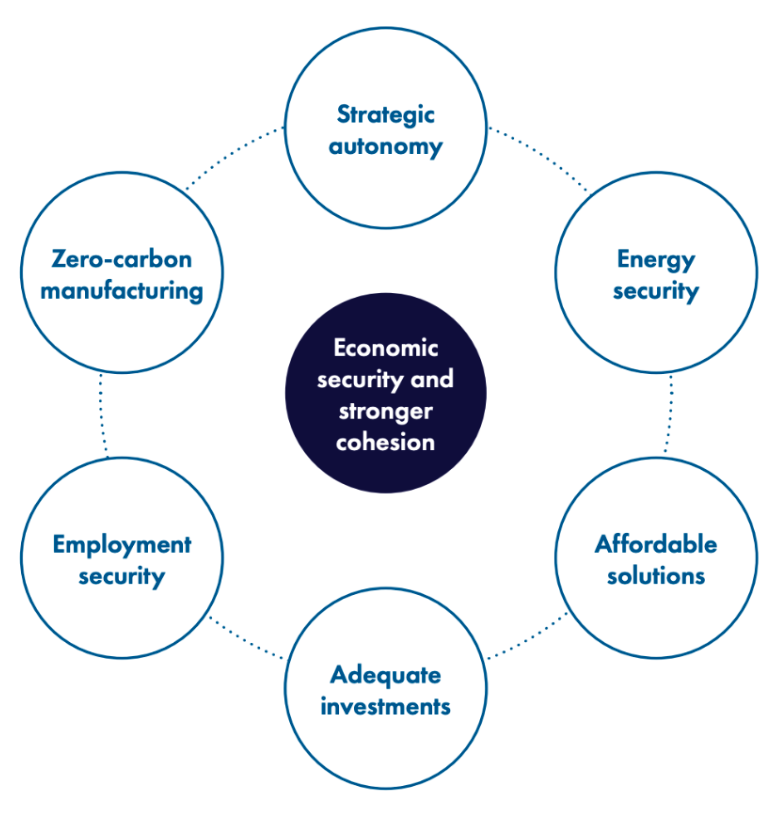11. 04. 2024
AUTHOR: Linda Kalcher and Neil Makaroff
The European Green Deal laid an important foundation for the modernisation of the EU’s economy and society. However, the job is not yet done.
As the European Parliament elections are approaching on 6-9 June, a debate is emerging on the future of Europe and the next phase of the European Green Deal. Strategic Perspectives’ new report ‘Forging Economic Security and Cohesion in the EU’ argues that a European Industrial Strategy can foster competitiveness, energy security and prosperity. Together with a 90% climate target, it can turn into the smartest economic and security choice and the next phase of the Green Deal.
We analysed the socio-economic impacts of a holistic European Industrial Strategy that delivers on our net 90% reduction pathway by 2040, based on data provided by Cambridge Econometrics. The €668 billion of additional investment over the next 15 years required to implement this strategy is largely outweighed by the major benefits for the European economy. The report shows that a European Industrial Strategy has the potential to:
- Reindustrialise Europe by creating 2 million jobs in net-zero industries by 2040, of which 1.6 million by 2035,
- Strengthen energy security by saving €856 billion on gas, oil and coal imports between 2025 and 2040, and
- Mitigate the cost-of-living crisis by cutting energy bills for households by two-thirds by 2035.
These benefits contribute to forging economic security and cohesion. Our proposition thus addresses a range of geopolitical, social and economic challenges by resulting in the following:

As policymakers across the continent discuss what should be on top of the EU-wide agenda, Strategic Perspectives identifies four main priorities for 2024-2029:
- Strengthening energy security through a zero-emission electrification framework which also provides affordable electricity across the EU,
- A holistic European Industrial Strategy,
- A new financial architecture, and
- Improved economic partnerships with developing countries.
The rationale for these priorities, as well as concrete policy suggestions, are covered in the report.
